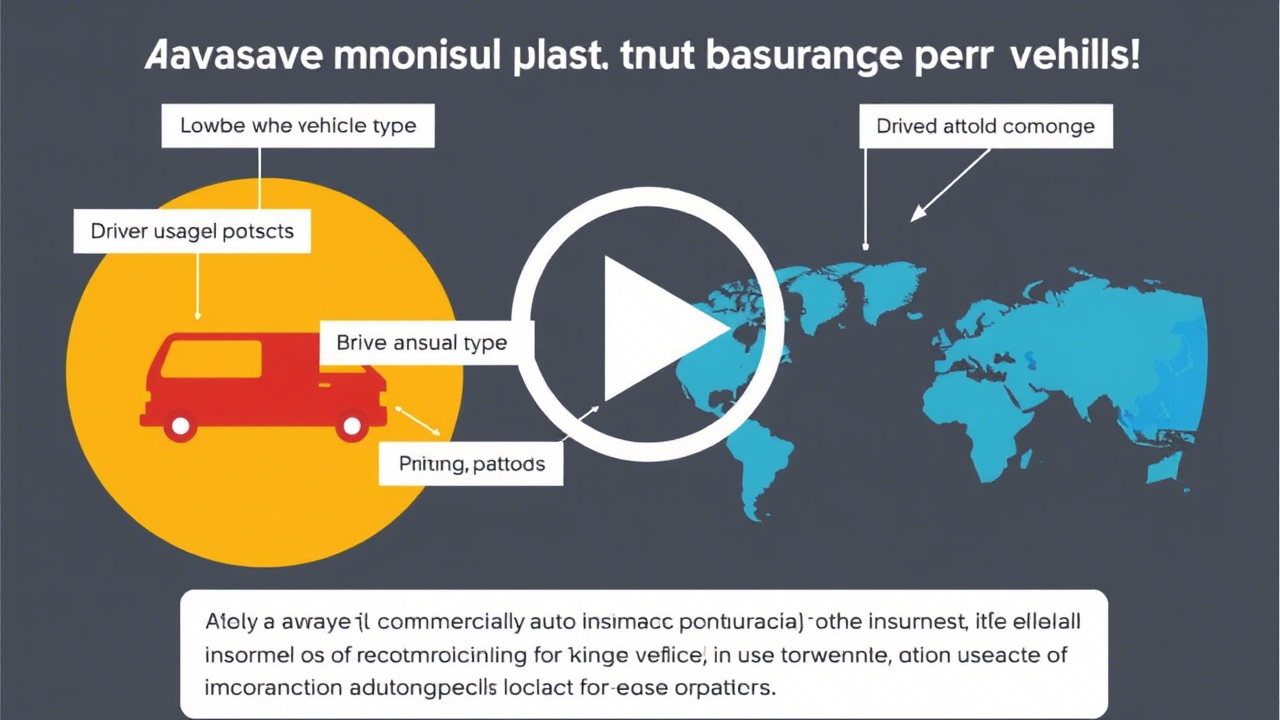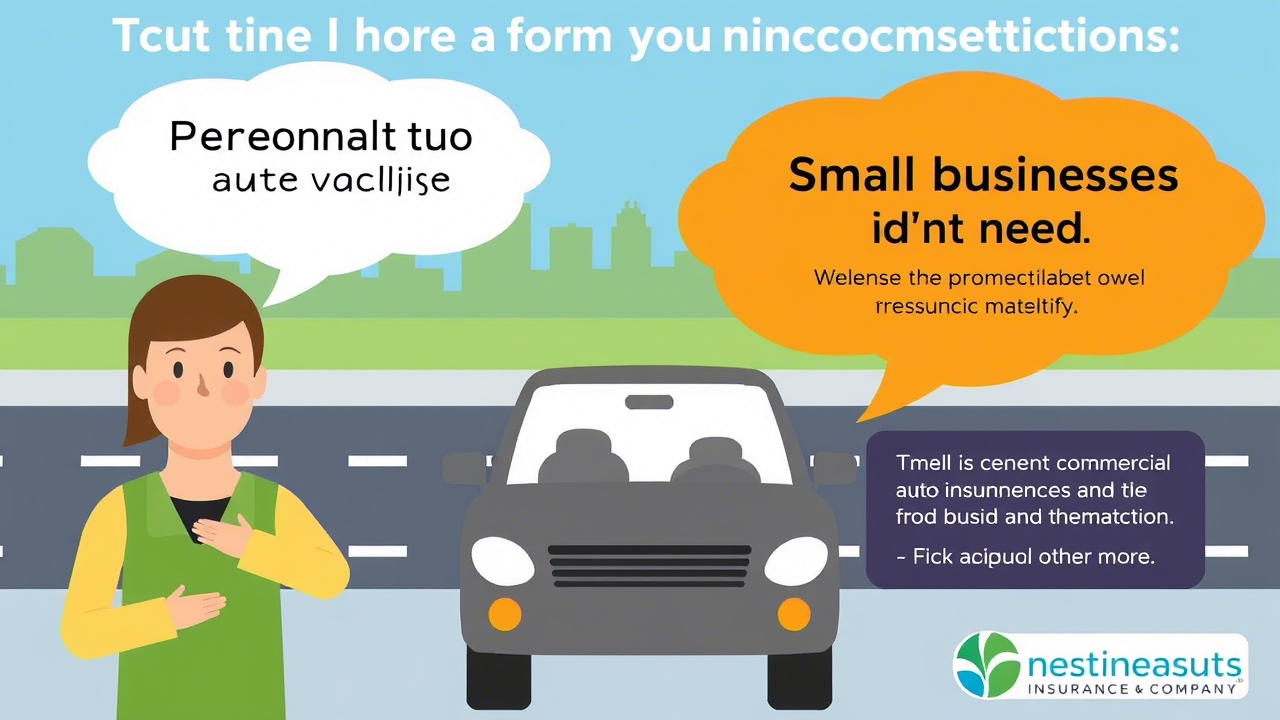In today’s fast-paced business world, commercial vehicles are the backbone of countless industries. From delivery trucks to service vans, these vehicles keep operations running smoothly. But what happens when an accident occurs? Without proper coverage, a single incident could cripple your business financially. That’s where commercial auto insurance comes in—a critical safeguard for any company relying on vehicles to get the job done.
This guide will walk you through everything you need about commercial auto insurance, from understanding its importance to selecting the right policy for your business. Whether you’re a seasoned entrepreneur or just starting, this article is designed to provide actionable insights and expert advice tailored to your needs.
Why Commercial Auto Insurance Matters More Than Ever
Imagine this: Sarah owns a small catering business that delivers meals to corporate events. One day, her driver accidentally rear-ends another vehicle while rushing to meet a tight deadline. Not only does the other driver suffer minor injuries, but their car sustains significant damage. Without commercial auto insurance, Sarah would be responsible for covering medical bills, repair costs, and potential legal fees—expenses that could easily exceed $50,000.
Real-Life Consequences of Skipping Coverage
Stories like Sarah’s aren’t uncommon. According to the National Highway Traffic Safety Administration (NHTSA), there were over 6 million car crashes in the U.S. alone in 2022—many of these involved commercial vehicles. Without adequate insurance, businesses face severe financial risks, including lawsuits, property damage claims, and bankruptcy.
Commercial auto insurance isn’t just a legal requirement in most states—it’s a business lifeline. It protects against liabilities, repairs damaged vehicles, and ensures employees can continue working without interruption.
Understanding the Basics of Commercial Auto Insurance
Before diving into specifics, let’s break down what commercial auto insurance covers. Unlike personal auto policies, which focus on individual drivers, commercial auto insurance is tailored to protect businesses and their fleets.
What Does Commercial Auto Insurance Cover?
Most standard policies include the following key components:
Liability Coverage
This is the foundation of any commercial auto policy. It pays for damages or injuries caused by your employees while operating company vehicles. For example, if one of your delivery drivers hits a pedestrian, liability coverage will handle medical expenses and legal defence costs.
Collision Coverage
If your vehicle collides with another object—a tree, car, or building—collision coverage steps in to pay for repairs. This is especially important for businesses with older vehicles that may not have the latest safety features.
Comprehensive Coverage
Think of comprehensive coverage as protection against non-collision incidents. This includes theft, vandalism, natural disasters, and falling objects. If a hailstorm damages your fleet overnight, comprehensive coverage has you covered.
Medical Payments Coverage
Also known as MedPay, this optional add-on covers medical expenses for anyone injured in an accident involving your commercial vehicle, regardless of who’s at fault.
Uninsured/Underinsured Motorist Coverage
Unfortunately, not all drivers carry sufficient insurance. This coverage kicks in when someone without insurance—or inadequate coverage—causes an accident involving your vehicle.
How Much Does Commercial Auto Insurance Cost?
The cost of commercial auto insurance varies widely depending on several factors. Businesses can expect to pay between $1,500 and $3,000 annually per vehicle. However, premiums can fluctuate based on:
Key Factors Influencing Premiums
- Type of Vehicle: Larger trucks and specialized equipment typically cost more to insure than standard passenger vehicles.
- Driver History Drivers with clean records receive lower rates than those with multiple violations or accidents.
- Location: Urban areas have higher premiums due to increased traffic and crime rates.
- Usage Patterns: Vehicles used for long-haul deliveries or high-risk activities (e.g., construction) often require higher coverage limits.
- Business Size Larger fleets usually benefit from bulk discounts but may have higher overall costs.
To save money, consider bundling your commercial auto policy with other types of business insurance, such as general liability or workers’ compensation.

Choosing the Right Policy for Your Business
Selecting the perfect commercial auto insurance policy requires careful consideration. Here’s how to make an informed decision:
Step 1: Assess Your Needs
Start by evaluating your business’s unique requirements. Do you operate a single van or manage a fleet of 50 trucks? Are your vehicles exposed to hazardous conditions? Answering these questions will help determine the appropriate level of coverage.
Step 2: Compare Quotes
Don’t settle for the first quote you receive. Shop around and compare offers from multiple providers. Look beyond price; consider customer service ratings, claim processing times, and additional benefits like roadside assistance.
Step 3: Work with an Expert
Insurance brokers specialize in matching businesses with the best policies. They can provide valuable insights and negotiate better terms on your behalf.
Common Misconceptions About Commercial Auto Insurance
Many business owners fall victim to myths about commercial auto insurance. Let’s debunk a few common ones:
Personal Auto Policies Suffice
While using a personal policy for work-related driving might seem convenient, most insurers explicitly exclude business use. If an accident occurs during work hours, your claim could be denied.
All Policies Are Created Equal
Not true! Coverage options, exclusions, and pricing vary significantly between providers. Always read the fine print before signing up.
Small Businesses Don’t Need It
Even if you only own one vehicle, commercial auto insurance is essential. Accidents happen unexpectedly, and being underinsured can lead to devastating consequences.

Tips for Reducing Claims and Lowering Costs
Prevention is always better than cure. By implementing proactive measures, you can reduce the likelihood of accidents and keep your premiums low.
Driver Training Programs
Invest in defensive driving courses for your team. They improve road safety, and many insurers offer discounts for certified training programs.
Regular Maintenance Checks
Well-maintained vehicles are less likely to break down or cause accidents. Schedule routine inspections to ensure brakes, tyres, and lights function correctly.
Telematics Devices
Some insurers offer usage-based insurance programs that track driving behaviour via telematics devices. Safe drivers can earn substantial discounts.
Expert Insights: What Industry Leaders Say
We spoke with John Carter, a veteran insurance agent with over 20 years of experience, to gain further perspective. “The biggest mistake I see businesses make,” he says, “is underestimating their exposure. Even companies with minimal driving needs should invest in robust coverage. It’s not just about protecting assets—it’s about safeguarding your reputation.”
John also emphasizes the importance of reviewing policies annually. “As your business grows, so do your risks. Regular audits ensure your coverage keeps pace with changing demands.”
Frequently Asked Questions (FAQ)
Is commercial auto insurance mandatory in most states? Businesses must carry commercial auto insurance if they use vehicles for work purposes. Requirements vary, so check local regulations.
Can I use my auto policy for business use?
No, personal policies generally exclude business-related activities. Mixing the two can void your coverage entirely.
What happens if I don’t report an accident?
Failing to report an accident can result in denied claims, fines, or criminal charges. Always notify your insurer immediately after an incident.
How can I lower my premium?
Consider increasing deductibles, improving driver safety records, and installing anti-theft devices. Bundling policies can also yield savings.
Does commercial auto insurance cover leased vehicles?
Yes, most policies extend coverage to leased or rented vehicles. Confirm with your provider to avoid surprises.
Final Thoughts: Drive With Confidence
Commercial auto insurance is more than just a checkbox—it’s a strategic investment in your business’s future. You can protect your assets, employees, and bottom line by choosing the right policy, staying vigilant on the road, and prioritizing preventive measures.
Remember, accidents are unpredictable, but preparation doesn’t have to be. Take the time to evaluate your needs, consult with experts, and secure a policy that aligns with your goals. After all, peace of mind is priceless.
By crafting this comprehensive guide, we aim to empower business owners like you to navigate the complexities of commercial auto insurance confidently. Please share this article with fellow entrepreneurs, and let us know in the comments how your business stays protected on the road!

